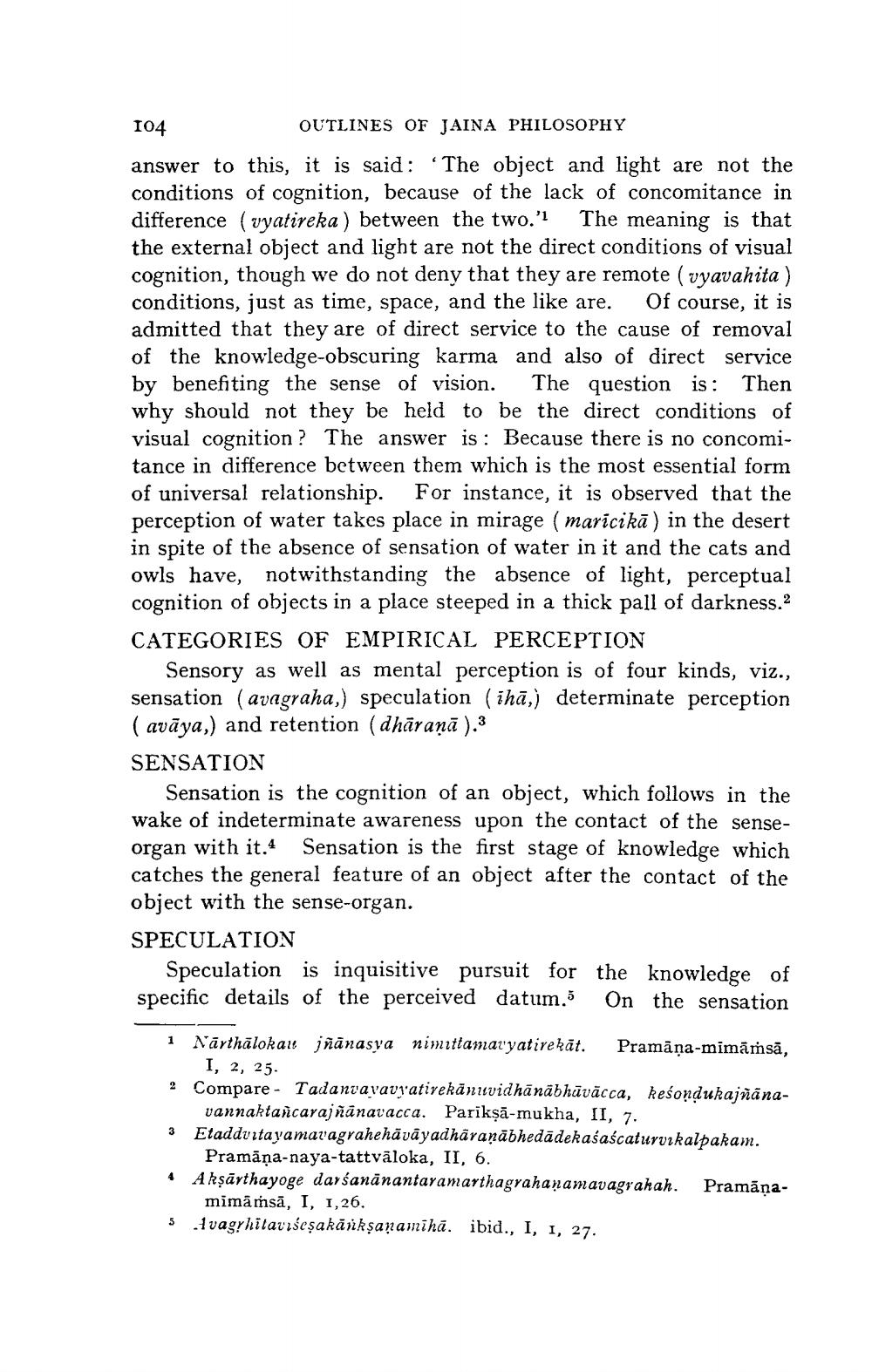________________
104
OUTLINES OF JAINA PHILOSOPHY answer to this, it is said: “The object and light are not the conditions of cognition, because of the lack of concomitance in difference (vyatireka) between the two.' The meaning is that the external object and light are not the direct conditions of visual cognition, though we do not deny that they are remote (vyavahita ) conditions, just as time, space, and the like are. Of course, it is admitted that they are of direct service to the cause of removal of the knowledge-obscuring karma and also of direct service by benefiting the sense of vision. The question is: Then why should not they be held to be the direct conditions of visual cognition ? The answer is : Because there is no concomitance in difference between them which is the most essential form of universal relationship. For instance, it is observed that the perception of water takes place in mirage ( maricikā) in the desert in spite of the absence of sensation of water in it and the cats and owls have, notwithstanding the absence of light, perceptual cognition of objects in a place steeped in a thick pall of darkness.2 CATEGORIES OF EMPIRICAL PERCEPTION
Sensory as well as mental perception is of four kinds, viz., sensation (avagraha,) speculation (ihā,) determinate perception ( avāya,) and retention (dhāraņā).3 SENSATION
Sensation is the cognition of an object, which follows in the wake of indeterminate awareness upon the contact of the senseorgan with it. Sensation is the first stage of knowledge which catches the general feature of an object after the contact of the object with the sense-organ. SPECULATION
Speculation is inquisitive pursuit for the knowledge of specific details of the perceived datum. On the sensation
1 Nārthālokau jñānasva nimittamaryatire kāt. Pramāna-mimāṁsā,
I, 2, 25. 2 Compare - Tadanvavaujativekānuvidhānābhūvācca, keśondukajñāna
vannaktancarajñānavacca. Parikṣā-mukha, II, 7. 3 Etaddvitayamavagrahehāvāyadhāraṇābhedādekaśaścaturvikalpakam.
Pramāņa-naya-tattvāloka, II, 6. 4 Akşārthayoge darśanānantayamarthagrahanamavagrahah Pramāna
mimāṁsā, I, 1,26. 5 Ivagyhitavıśesakāúkṣaṇamiha. ibid., I, I, 27.




